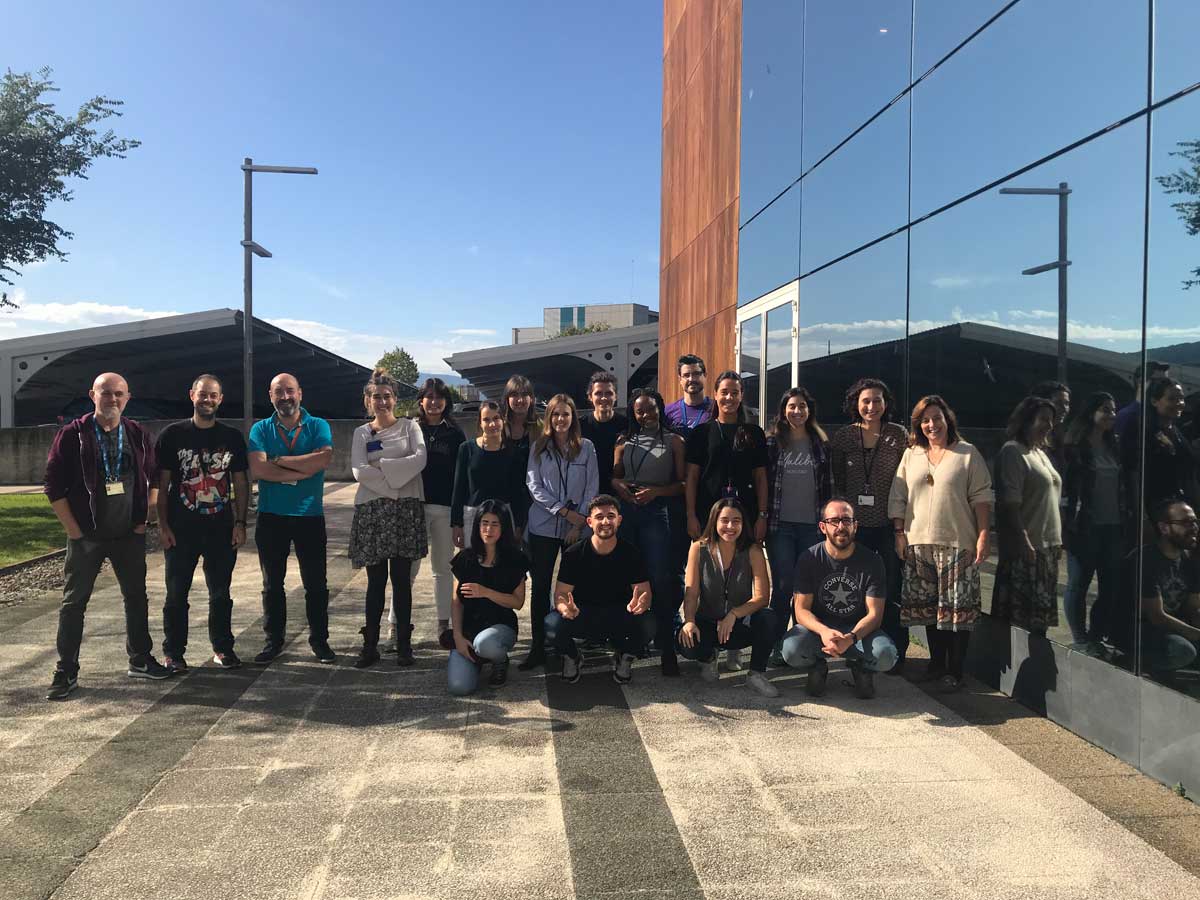
2019/11/25
A team from CIC bioGUNE identifies an epigenetic therapy for the treatment of fatty liver disease and its progression to fibrosis
CIC bioGUNE has patented the therapy and has reached an agreement with the U.S. biotech company Mitotherapeutix for clinical trials to be conducted.
The findings of this research have been published in the journal Molecular Metabolism.
(Bilbao, 25 November 2019). A team from CIC bioGUNE has identified a possible therapeutic target for patients suffering from non-alcoholic fatty liver disease. The research, carried out in the Liver Disease Laboratory led by Dr. Malu Martínez Chantar, researcher at CIC bioGUNE and at the CIBER (Centre for Network Biomedical Research) for Hepatic and Digestive Diseases (CIBEREHD), has verified that microRNA 873-5p, as the molecule identified as the regulator of gene expression is known, may open a door for the treatment of non-alcoholic fatty liver disease.
The new epigenetic therapy has been patented by CIC bioGUNE, who have signed a collaboration agreement with the U.S. biotech company Mitotherapeutix that will enable clinical trials of therapeutic molecules aimed at this microRNA to be conducted. To date, preclinical trials have been conducted on models of fatty liver and fibrosis.
Dr. Malu Martínez Chantar explains: "MiRNAs are molecules regulating gene expression. A single miRNA can modulate the expression of multiple genes involved in different processes associated with the development of a pathology. This broad spectrum of action has seen them emerge as new therapeutic tools for the treatment of complex diseases".
The Marqués de Valdecilla University Hospital, the Valdecilla Health Research Institute, the Faculty of Medicine of the University of the Basque Country, the Faculty of Pharmacy of the University of Lisbon, the University of Vermont (USA), the University of Saarland (Germany), the University of Luxembourg and the Cedars-Sinai Medical Center of Los Angeles (USA) have all participated together with CIC bioGUNE in this international collaborative study.
The first author of the study, the findings of which have been published in the journal Molecular Metabolism, is Dr. Pablo Fernández Tussy, a researcher at CIC bioGUNE and at the Centre for Network Biomedical Research for Hepatic and Digestive Diseases (CIBEREHD).
A disease for which no treatment currently exists
Non-alcoholic fatty liver disease has a prevalence of 20 to 30% in the global population, meaning that approximately 1.7 billion individuals suffer from it. This pathology ranges from simple steatosis (hepatic fat) to its inflammatory expression (steatohepatitis), which can evolve into fibrosis, cirrhosis and, occasionally, hepatocellular carcinoma.
Non-alcoholic fatty liver disease is the hepatic expression of the Metabolic Syndrome, and has several associated symptoms: obesity, insulin resistance, dyslipidemia and systemic arterial hypertension. One of the main characteristics of this pathology is its enormous complexity due to its associated comorbidities, which means that even today it is considered a disease for which no treatment exists, despite the investment made by various companies in clinical trials aimed at finding a treatment for it.
About CIC bioGUNE
The Centre for Cooperative Research in Biosciences (CIC bioGUNE), located in the Bizkaia Technology Park, is a biomedical research organisation conducting cutting-edge research at the interface between structural, molecular and cell biology, with a particular focus on generating knowledge on the molecular bases of disease, for use in the development of new diagnostic methods and advanced therapies. CIC bioGUNE has been accredited as a “Severo Ochoa Centre of Excellence”, the highest level of recognition for centres of excellence in Spain. CIC bioGUNE is a member of the Basque Research and Technology Alliance (BRTA), a public consortium formed in collaboration between the Basque Government, the SPRI Group, the Provincial Governments and the Cooperative Research Centres and Technology Centres of the Basque Science, Technology and Innovation Network. The aim of the BRTA is to ensure a "dynamic of cooperation" which enables us to meet the future technological and industrial challenges of the Basque Country and improve its international standing and impact.
About the CIBEREHD
The purpose of the CIBER’s (Centre for Network Biomedical Research) thematic area of Hepatic and Digestive Diseases (CIBEREHD), a research centre of the Carlos III Health Institute (Ministry of Economy, Industry and Competitiveness) and co-funded by the ERDF, is to promote and protect health by championing research. This work, the scope of which includes both basic research and clinical and translational aspects, is focused on the field of Hepatic and Digestive Diseases, with the aim of innovating in the prevention of these diseases and furthering progress in the fields of Science and healthcare through the collaboration of benchmark Spanish groups.
See a large version of the first picture





